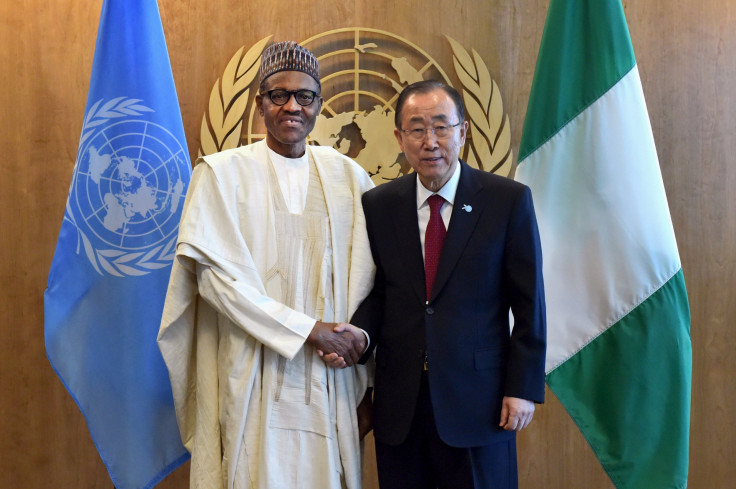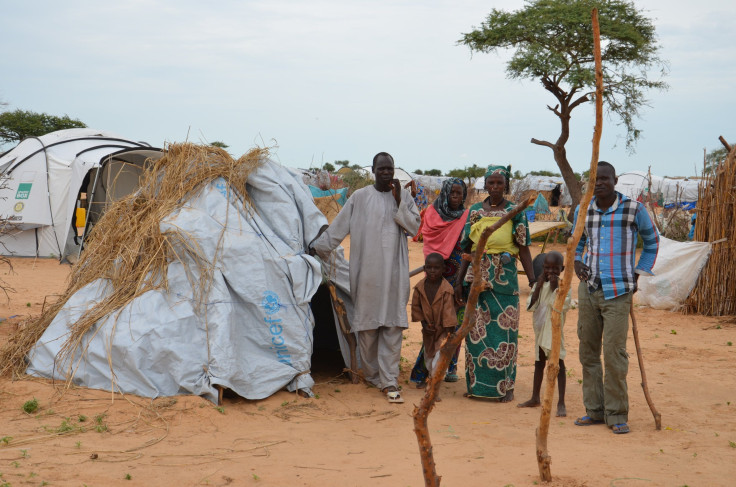Nigeria's Buhari Slammed For Missing UN Meeting On Boko Haram: Report

Nigerian President Muhammadu Buhari and his delegation have received criticism for reportedly missing a United Nations meeting Friday in New York to discuss Islamic extremist group Boko Haram’s insurgency and the millions of displaced people in the Lake Chad area. U.S. and European Union diplomats attending the United Nations General Assembly expressed their disappointment that Nigeria did not attend the event while other African delegations did, Reuters reported.
The meeting, chaired by U.N. Humanitarian Aid Chief Stephen O’Brien, was held on the sidelines of the main event Friday. While Nigeria was noticeably missing, leaders from Niger, Chad and Cameroon were among the attendees, according to Nigeria’s Vanguard newspaper. However, Buhari’s spokesman released a statement in reaction to the criticism, saying the reports that the Nigerian leader missed the meeting were “erroneous,” and Buhari was fully invested in the issues of those affected by Boko Haram’s six-year insurgency in northern Nigeria.
“Contrary to the erroneous impression that may have been created by reports that the Nigerian delegation to the 70th Session of the United Nations General Assembly missed a meeting on help for displaced persons, President Muhammadu Buhari and his administration remain fully committed to the rehabilitation and well-being of all persons who have been displaced or adversely affected by the Boko Haram insurgency,” Garba Shehu, the senior special advisor to the president on media and publicity, said in a statement Friday, according to Nigeria’s Daily Times.
Shehu further noted that the meeting in question was an unofficial event and not the most important meeting on Boko Haram and that the Nigerian delegation couldn’t possibly attend them all.
“This notwithstanding, it must be realized that it will be near impossible for any national delegation, no matter its size, to participate in all the meetings that are simultaneously happening in and around the General Assembly in New York. The meeting at which Nigeria was reportedly absent was not one the official events of the United Nations for which President Muhammadu Buhari and his modest delegation are in New York,” he reportedly said in the statement. “While the meeting referred to in media reports is commendable, it was not the only one or the most important of such meetings in New York that are paying attention to the problem of insecurity, migration and violent extremism in the Lake Chad area and the rest of the world.”

Boko Haram militants retreated from much of their held territory in northern Nigeria following a regional offensive by Nigeria, Niger, Chad and Cameroon earlier this year. But the extremists have struck back with a renewed wave of violence and deadly attacks since Buhari took office at the end of May. Niger Prime Minister Brigi Rafini said Friday the Lake Chad region was experiencing a “genuine disaster,” according to Reuters.
"We need massive assistance from the international community," Rafini reportedly said. "It is the population that has shared with these refugees and displaced people the little they have while they themselves are living in extremely vulnerable situations."
The United Nations said about 2.3 million people have been forced from their homes since May 2013, and a quarter of a million of them fled from Nigeria into Cameroon, Chad and Niger. The United States has pledged $6.8 million in funding for regional aid efforts.
© Copyright IBTimes 2024. All rights reserved.











